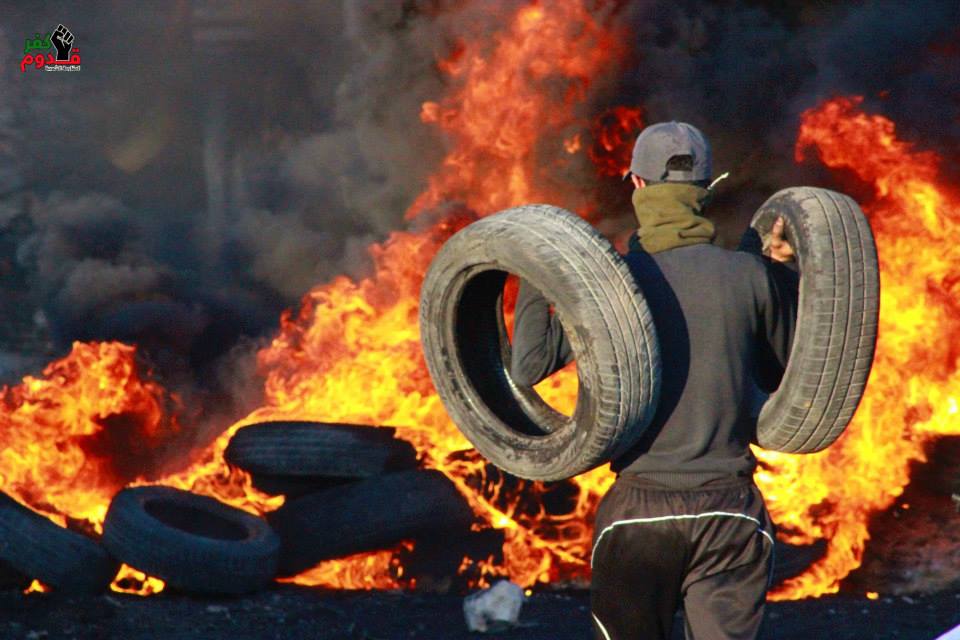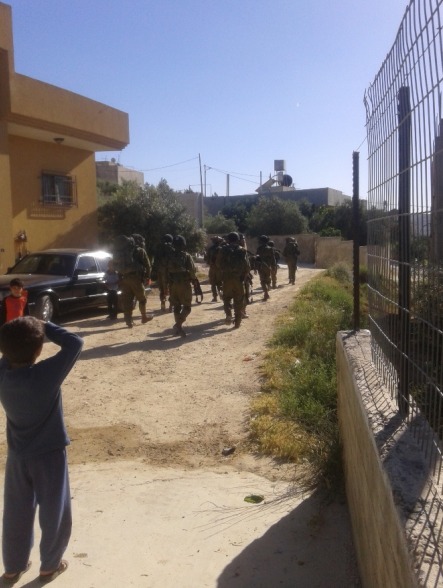Tag: Night Raid
-
14 more arrested as Israeli army intensifies arrest campaign in Kafr Qaddum
13th May 2014 | International Solidarity Movement, Nablus Team | Kafr Qaddum, Occupied Palestine Update 13th May: The eight youths arrested and held following the night raid in Kafr Qaddum have court on the 15th May, at Salem Court, near Jenin. ***** 14 people were arrested in Kafr Qaddum during a night raid on the…
-
UPDATED: Murad Eshtewi, and four Palestinian youths from Kafr Qaddum, still under custody after court hearing
12th May 2014 | International Solidarity Movement, Nablus Team | Kafr Qaddum, Occupied Palestine Second Update Tuesday 13th May: Murad Eshtwei’s next court day is Sunday 18th May at Ofer prison. Ream Harham, Mustafa Eshtewi, and Ahmad Hassan Eshtewi have a court date tomorrow in Ofer court at 14:30. Reslan Joma will have his court date next week.…
-
Harassment in Awarta
2nd May 2014 | International Solidarity Movement, Nablus Team| Awarta, Occupied Palestine At 4.30 am on Wednesday the 30th of April; a group of Israeli soldiers broke into a family home in the village of Awarta, near the illegal settlement of Itamar. 11 soldiers woke up the family, claiming that it was “security search”. A member of the family…



